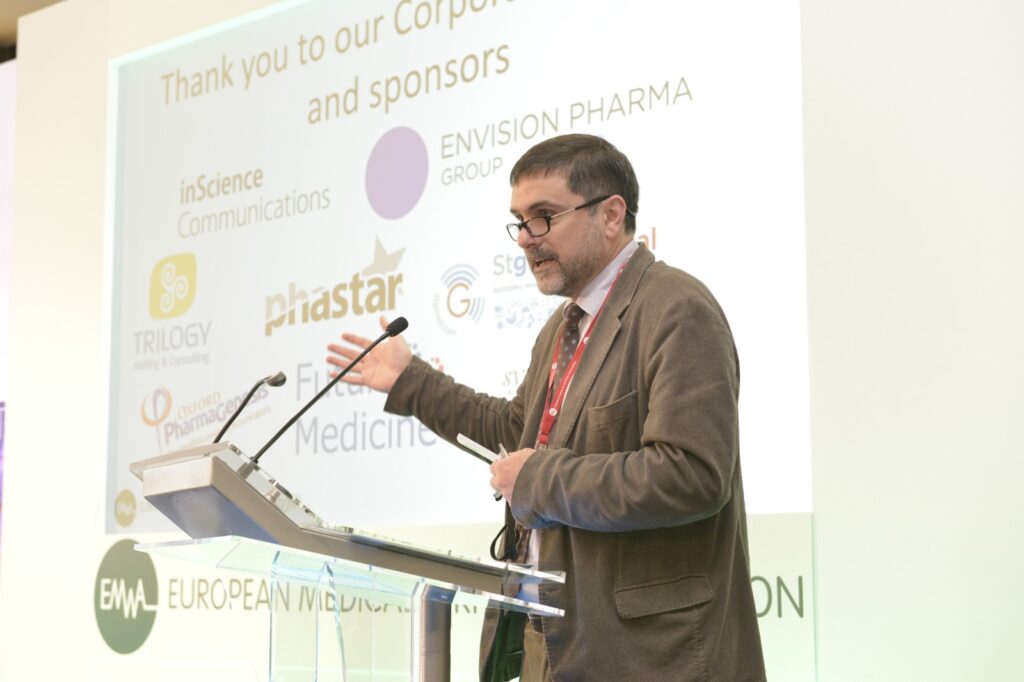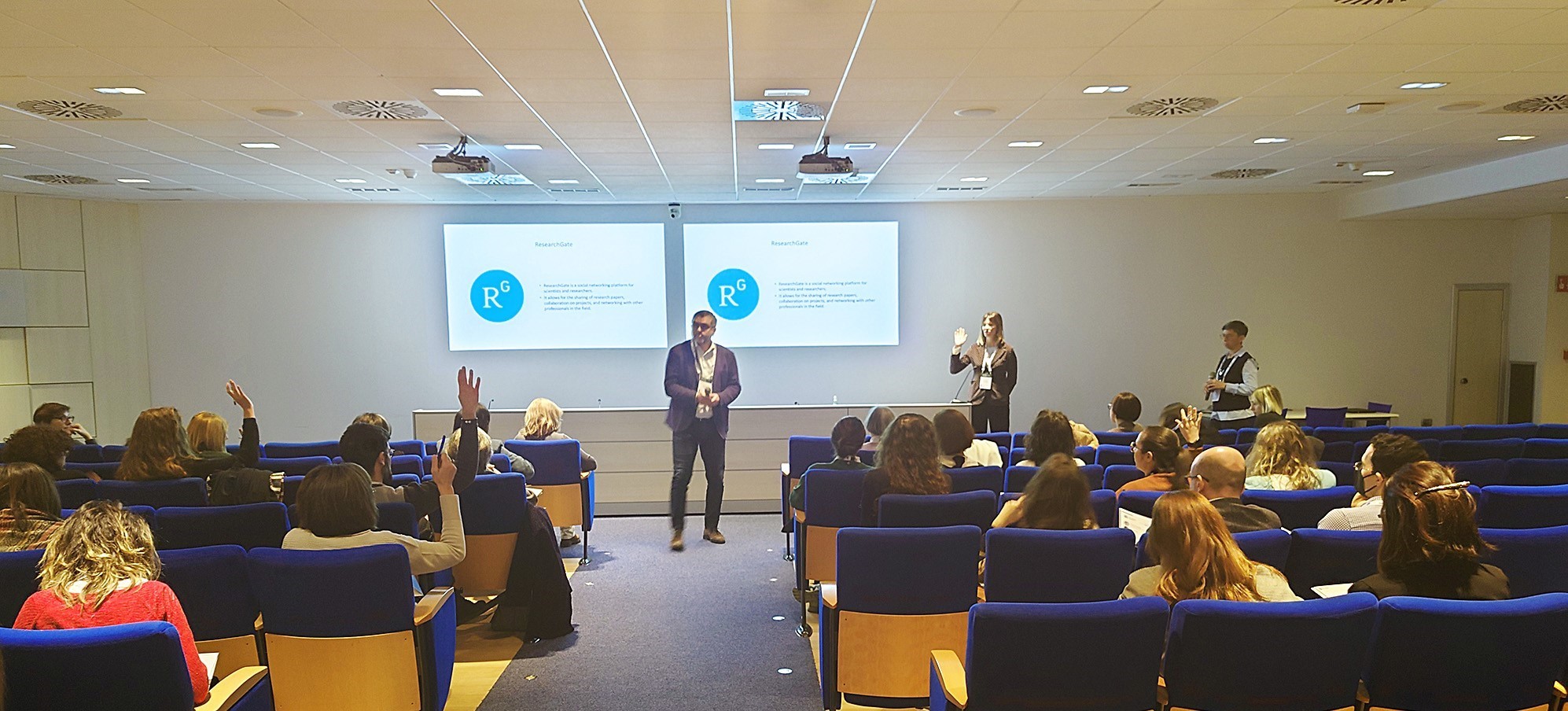In an increasingly knowledge-driven and communicative society, the role of the medical writer emerges as a crucial yet often underestimated profession. To shed light on this fascinating yet still relatively unknown field in Italy, we turn to a true expert in the field: Andrea Rossi. With a career spanning over three decades in the world of pharmaceutical development and past leadership roles in the European Medical Writers Association (EMWA), Andrea offers a perspective rich in experience and valuable insights.
Background
Andrea’s professional journey began in the late 1980s as an environmental biologist, with ambitious projects that would have taken him to Antarctica to study the oceanic water in the Ross Sea. However, fate took an unexpected turn when an opportunity arose to work for a company specializing in clinical analysis products, effectively ending his brief academic adventure. Later, in 1989, Andrea was contacted by the medical management of Lilly Italy, offering him a contract as a Clinical Research Associate. This opportunity propelled him into the world of clinical research and, subsequently, into roles such as Medical Liaison and Medical Writer, eventually becoming head of the Medical Writing and Scientific Communication department in 2002. It was during this time that Andrea encountered EMWA, in a meeting that opened the doors to a network of colleagues and mentors who would significantly shape his career.
Here’s how Andrea recalls his experience at his first EMWA congress in Manchester in 2002: “I found myself in an environment where people I had never seen or known before came up to me and said, ‘Welcome! What do you do? What are you up to? What do you need to become a good Medical Writer? We’re here to help you.’”
Initially, this attitude seemed to him like the bitter fruit of a form of madness, but Andrea was soon forced to change his mind, especially when he realized that the EMWA group was genuinely helping him solve professional problems, without nonsense or inconclusive panegyrics. And he liked it, because it fit perfectly with his needs and his friendly character, as he explains: “I really started to appreciate my colleagues, I started to understand that I was in a world that I liked… it was my shoe, as they say where I live. It was really the thing that I felt comfortable with, the environment and the work, so since then I have continued to work as a Medical Writer with Lilly.”
Defining Medical Writing
Andrea describes medical writing as a universe of scientific communication that involves preparing a wide range of medical and scientific documents. From regulatory reports to promotional communication, from study protocols to congress presentations, medical writing encompasses every documental aspect in the field of medicine and clinical research.
Above all, medical writing entails a perfect understanding of what it means to communicate in science, an art that requires multidisciplinary skills and the ability to translate complex data into accessible language for different audiences. Here’s how Andrea explains it in a nutshell: “No one knows everything that happens in medicine. When I graduated, my professor decreed that I was an environmental biologist, that is, a professional in a field where progress is much slower than in medicine, simply because there is less money involved. He told me, ‘Look, what you have learned at university now, in 10 years you might use maybe 20% of it.’ The problem is you don’t know which 20%. Therefore, (in this profession) don’t think about stopping studying. Never.”

Daily Practice and Professional Advice
For those embarking on the path of medical writing, Andrea’s experience offers valuable advice and insights into the daily life of this profession. From the importance of staying constantly updated on new discoveries and trends, to the ability to manage one’s time and communicate effectively with clients, every aspect of this profession requires dedication and expertise: “Then, when I was in the company, I worked in all therapeutic areas where we had products. So, I went from oncology to erectile dysfunction in 5 minutes, literally. I really worked in any therapeutic area. And obviously, this leads to a consequence: that is, if you want to be a Medical Writer, you have to understand very well what you are talking about.“
Andrea emphasizes the importance of curiosity and the ability to ask questions and highlights this aspect as useful advice for anyone wishing to pursue this career: “The first thing I would advise any medical writer is to be curious, always be updated and never be satisfied with what you know. The other thing I advise them is to be good at asking questions. We are fortunate to work with doctors, statisticians, other medical writers, so we need to ask them what we don’t know. And this is not an indication of weakness, but rather, it is an indication of great professionalism.”
The Medical Writer as a Consultant
One of the most fascinating perspectives proposed by Andrea is his view of the medical writer as a consultant. In addition to serving as a scientific communicator, the medical writer acts as a bridge between complex data and their practical applications. This awareness also stems from Andrea’s experience as a Medical Liaison, which allowed him to observe the clinical implications of what he writes: “Well, it’s a very nice job (Medical Liaison), it has many positive aspects, because it especially allows you to understand that what we write is then perceived as it is perceived. That is, it makes you understand the difference between drafting and communicating, which is a fundamental point.”
In other words, regardless of the solidity of the article, it is possible to realize that one’s writing can be interpreted in many different ways, with repercussions that can be completely different from what is expected when starting to write.
Thus, a great responsibility of the medical writer emerges: to be able to interpret and synthesize study results, in order to guide clinical and commercial decisions. This perspective reflects a growing trend towards a more general and comprehensive approach, where the medical writer, in addition to being a communicator, must also be a consultant with skills that go beyond mere document drafting.
Differences in Medical Writing in Italy and Abroad
Therefore, this role entails great responsibility and importance. However, one of the challenges that the medical writer faces in Italy is the lack of proper recognition and resources. While in countries like Germany, the United Kingdom, and Switzerland, medical writing is integrated into academic curricula and supported by a vast professional community, in Italy it remains a marginal sector.
Andrea highlights the problem directly, almost brutally: “In Italy, there is absolutely no one who deals with medical writing. Who does the Medical Writer job? The last student who speaks English or the native-speaking secretary. So, a very approximate approach. But this is not medical writing, this is making do!“
This degrades the profession, exactly as it happens in many other sectors. However, there are signs of change, with initiatives ranging from the first attempts to organize university courses to efforts to raise public awareness. But to do this, the Italian medical writers need to be aware of their role and build a network to defend it: “It is essential for those who do this job, and that’s why we are trying to join forces. If we don’t make ourselves known, if we don’t make ourselves heard, this situation will never change.“
Professional Expectations and Future Perspectives
When asked about professional expectations in the field of medical writing, Andrea reflects on the need to continue to educate and promote the profession in Italy. Indeed, with an increasing number of pharmaceutical companies and research institutes recognizing the value of medical writing, career opportunities are growing.
However, this requires a constant commitment to pursuing high standards and promoting a culture of excellence in scientific communication. This is crucial, especially at the beginning of one’s career when there is a lot of willingness but there are also many doubts: “So, my advice is to find a job in a company. Better if a company that guarantees you a training. If you work in a company, whatever job you do, you must do mandatory training.”
However, not everyone is fortunate enough to be hired, and for this reason, many find themselves in the situation of having to start as freelancers. What to do in this case? Andrea’s response to the aspiring medical writer requires self-examination: “The first thing I would tell them is to try to understand how much they know, if they feel ready enough to work independently and, above all, if they feel skilled enough to manage their own time. Because the big problem for freelancers is time management. In fact, there is not only the writing, but there are also client relationships, administration, legal issues, the accountant, and many other things.“
Conclusions
Andrea’s experience offers an in-depth look into the fascinating and ever-evolving world of medical writing. This is especially aimed at all those, whether recent graduates or professionals, who wish to embark on a career path rich in challenges and opportunities, always keeping an eye on the future: in other words, that of an industry that promises to further consolidate its key role in clinical development, with the prospect of acquiring a central position in the global healthcare landscape.
Inizio modulo


Leave a Reply